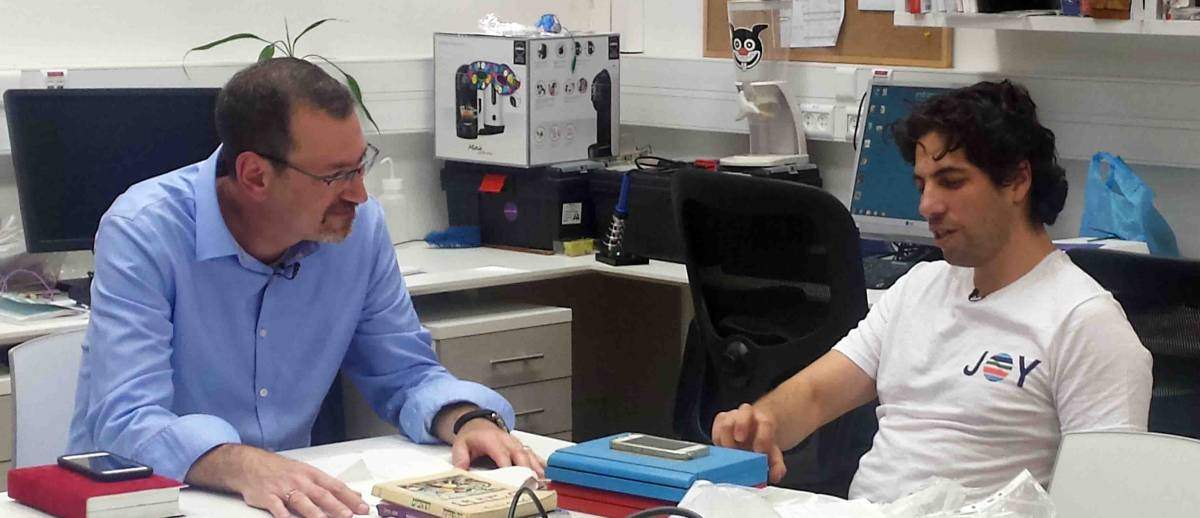Are you a journalist? Please sign up here for our press releases
Subscribe to our monthly newsletter:

In the course of writing his doctoral thesis, Emil (Emanuel) Eidin, a student in the Weizmann Institute of Science’s Science Teaching Department, started thinking about the people he would like to thank in the acknowledgements section at the end. He decided that some of the people to whom thanks were due were the Perach mentors who had helped worked with him as a child. Perach is a national mentor program established over 40 years ago at the Weizmann Institute, in which college students work one-on-one with children who are disadvantaged or having trouble in school. Eidin did not remember the surnames of the mentors who had worked with him, so he sent an email to the Perach offices in hopes that someone would find his old mentors.
The email was then posted on Facebook, where it went viral. And the Perach people located Ra’anan Parpari, the mentor that Eidin remembers opening up new worlds for by giving him a book. That book was the Hobbit, by J.R.R. Tolkien, and it introduced the lonely boy to the world of fantasy. The two began writing on Facebook, and they eventually got together for some real face time.
The email was then posted on Facebook, where it went viral
In elementary school, Eidin was a “problem child” whose grades were middling to low. So the meeting was an emotional one: Eidin told Parpari just how much his help and support had meant to him. “I lived for LEGO, music and Sherlock Holmes books,” he said. “But in school, if your grades are not good enough, then you are not good enough. Parpari saw me and he could see beyond my grades. And the door he opened for me to the world of fantasy had a real influence on my decision to go into science.” Parpari remembers Emil as a nice, polite child who felt isolated. He helped with homework, but they also played fantasy games together, talked and went on walks.
When Eidin was an undergraduate, he returned to Perach, this time to work as a mentor. “Our hope,” say the two, “is that teachers reading our story will be inclined to look at their students a bit differently, and that more college students will be inspired to join Perach. That is why we agreed to let people know about our story.”